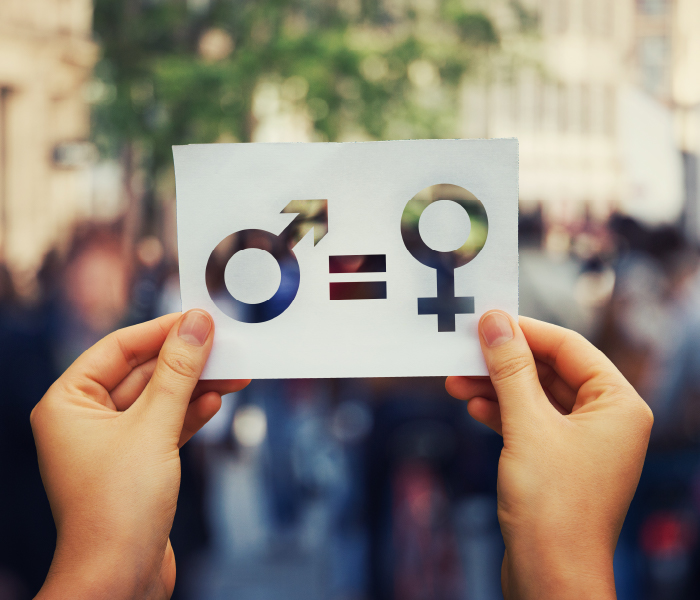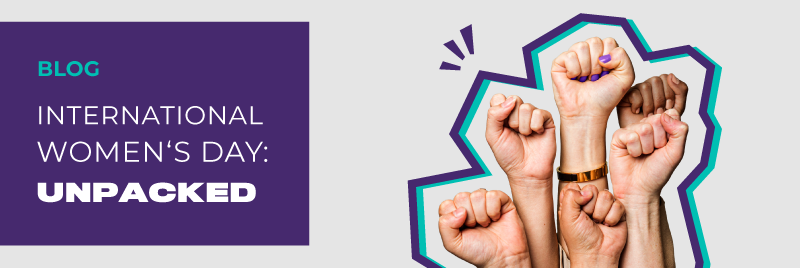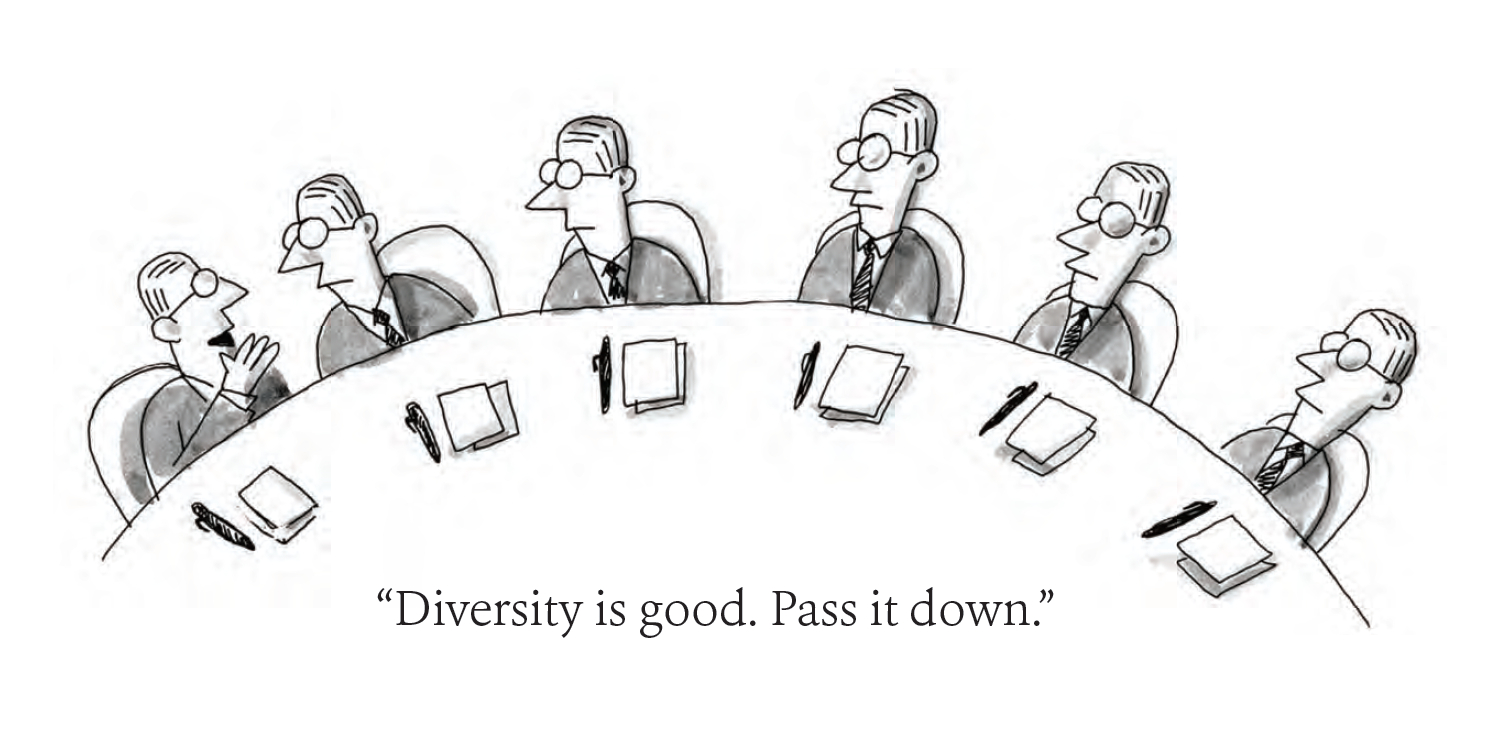IML ANZ chief executive David Pich, invites managers to rethink the way we evaluate the fairness of parental leave policies.
Continue readingHow to encourage employees to bring their whole selves to work
There’s a vital need to create working environments where everyone can feel they belong – in short, an inclusive workplace. To make that possible, you need to start at the top with managers and leaders.
Continue readingA legacy and a helping hand: The Eka Suputra IML Scholarship
Sometimes a simple helping hand can make a truly lasting impact on someone’s future. For Bianca Thatcher, a Bachelor of Business student at The Griffith Business School, a helping hand came in the form of the Eka Suputra IML Scholarship.
Continue readingLessons from Matariki: Why a strong sense of community is vital to good business
Matariki is about togetherness and forging a strong sense of community. It also teaches leaders vital lessons for good business.
Continue readingAttitude and actions: How to display leadership that supports equality
Less than a third of people working in science, technology and engineering in New Zealand are women. It’s no wonder that leading women in the industry, including manager of measurement, insight and reporting at the Energy Efficiency and Conservation Authority, Vij Kooyela MIML, are concerned.
 Kooyela believes that the challenge isn’t exclusive to leadership and management in the industry – there simply isn’t a solid pipeline of young women entering the workforce in this field.
Kooyela believes that the challenge isn’t exclusive to leadership and management in the industry – there simply isn’t a solid pipeline of young women entering the workforce in this field.
It’s not that the industry is lagging in taking positive steps toward social change. “The energy industry is in a fantastic space in New Zealand,” Kooyela admits. It is bolstered by policy directions that will benefit the environment, in particular the New Zealand Energy Strategy.
However, Kooyela can see that more can be done to grow the number of women in the energy sector.
Leaders’ actions matter
One factor that makes Kooyela acutely aware of the need for greater gender diversity in her industry is the team she manages. “My team are all men,” she says.
Kooyela would love to shake off the stereotype that male-dominated industries become that way due to natural abilities that men possess. “I don’t believe that girls are not as good as boys when it comes to quantitative skills. I think women have excellent communications skills and if that can be coupled with solid technical skills, then that’s an advantage.”
Simply put, the qualities of a good leader remain the same regardless of gender.
She also suggests practical ways for leaders to drive change:
- Language: For Kooyela, leaders should start with what they say. For example, when recruiting, she believes organisations should take a leaf off the UN, which include specific encouragement for women to apply for roles they advertise.
- Behaviour: Having once presented to an all-male room – and finding herself, the only woman, left alone on one side of the said room – Kooyela hopes more leaders will consider their actions. She challenges all leaders to remove all barriers to the equal treatment of people and to make everyone feel comfortable no matter the situation.
Leaders’ attitudes matter
Being no stranger to poor management experiences, Kooyela made a conscious decision to lead well. She found herself with a manager who didn’t do a great job and was described as a bully. Although for Kooyela, the focus was always on the silver lining. “I am so grateful for that experience because that is what pushed me to take the right steps, to demonstrate that [leadership] can be better and it can be done well,” Kooyela explains.
Since then, she has challenged herself to be a better manager and leader because of the impact she knows that leaders have on people. “If I can positively influence someone so that they make a step forward – whether that’s in their life or their career – that’s something very powerful,” Kooyela says.
However, she cautions other leaders, particularly women, to break away from the fear of uncertainty. “Leaders find comfort when we can tick all the boxes before venturing into something different and unknown. We want to get everything right,” she says.
Kooyela believes that more women should back themselves. For her, waiting for perfection is not the way forward.
Her advice? “Go for it. Don’t worry about having all the boxes ticked,” confirms Kooyela.
Leaders’ dialogue matters
“The key thing we are looking for is diversity of thought. Women do bring a different perspective on things and every workplace needs that balance of views,” says Kooyela.
What better way to gather a diverse set of views than through dialogue with a group of peers?
In March, for the first time, IML ANZ is hosting two International Women’s Day (IWD) events in Auckland and Wellington. This year, Vij Kooyela will join other leaders to explore the official IWD topic, ‘#EachforEqual’. Be part of the discussion and join forward-thinking managers and leaders in creating the type of dialogue that drives change.
Purchase tickets now:
Auckland – Friday, 6th March
Wellington – Friday, 13th March
Or for more information, contact events@managersandleaders.com.au.
#EachforEqual: How to create a gender equal workplace
By Gemma Lloyd
International Women’s Day is on 8 March 2020 and this year’s theme is #EachforEqual. It’s a good reminder that everyone has a role to play in helping create a gender equal world.
And a gender equal world means a gender equal workplace, where people are able to access and enjoy the same rewards, resources and opportunities regardless of gender.
While corporate Australia has been making progress on this front, it has a long way to go, with women still significantly underrepresented in leadership. According to the Australian Bureau of Statistics, only 13.7% of chair positions are held by women and only 17.1% of CEO positions.
Not only is a gender equal workplace what’s right and fair, it also makes good business sense. Working with some of Australia’s top employers, we see those companies with progressive gender equality policies consistently able to attract higher calibre talent – and retain them for longer. And the benefits of gender equality don’t stop there.
Gender equality health check
So how is your organisation tracking towards gender equality? Maybe it’s made progress in some areas but struggling in others, or there’s policies in place but room for improvement.
Conducting a gender audit is a good way to identify challenges and opportunities for increasing equality within your organisation, and create a plan for action.
WORK180 has gathered data from Australia’s most progressive companies, analysing their policies on flexible working, equal pay, parental support, career development and employee assistance. The result is a report and HR Health Check tool that employers can use to benchmark themselves against the best in their industry.
The HR Health Check only takes 10 minutes, and you’ll get a rating and high-level report comparing your business – you can get started here.
Future proofing your business
By being aware of HR benchmarks and trends, you’re in a better position to make informed policy decisions, and implement strategies that grow and future proof your business.
According to an EY global study, millennials will make up more than 75% of the workforce by 2025. And for them, a healthy work/life balance isn’t just a nice-to-have, it’s a deal-breaker.
In order to grow and future proof their businesses, and be able to attract and retain this massive segment of the workforce, organisations need to make changes to the way they engage with employees.
Smart companies are already doing just that. They’re changing and developing their policies and HR benefits, promoting positive outcomes for employees and employers, and offering greater support than the archaic and rigid workplace policies of the past.
8 ways to boost gender equality
Aside from conducting a gender audit and evolving policies, what are some practical ways that organisations can foster gender equality? In this WORK180 blog post, Dr Leonora Risse from RMIT University offered some useful tips:
- Make everyone automatically eligible for job promotions – instead of relying on candidates to self-nominate, which women are less likely to do, switch promotional opportunities from a choice to an automatic process.
- Don’t ask for volunteers, appoint them – don’t rely on community-minded women to voluntarily do the ‘office housework’. Instead, appoint these tasks systematically to ensure everyone in the office does their fair share.
- Remove gendered language from job ads – words that are stereotypically masculine or feminine in a job ad can have a powerful impact on whether a candidate applies or not. Use online gender bias decoder tools to screen job ads and make them more gender neutral.
- Calculate your organisation’s pay gap – companies need to first measure and recognise the existence of their gender pay gap, before they can fix it.
- Banish ‘manels’ – ensuring women are represented among panellists and speaker line-ups is critical for generating diversity of thought.
- Hand the microphone to a woman first – research shows that if a female asks the first question in a Q&A situation, it leads to more women asking questions than they would otherwise.
- Whose names and faces are on your walls? – if it’s mainly men, think about the message this sends about gender equality in your organisation.
- Explain why gender equality matters for men too – clearly communicate to your employees how gender equality and inclusive work practices deliver better outcomes for all.
Gemma Lloyd is the founder and CEO of WORK180, a recruitment platform that pre-screens employers to see how well they support women’s careers.
Join Gemma on 6th March at IML ANZ’s International Women’s Day Great Debate Event in Brisbane. Gemma will be joining five other leaders to debate whether ‘The world won’t listen unless women shout’.
How can your workplace help end period poverty?
This is a collaborative article written between women’s charity Share the Dignity and the Institute of Managers and Leaders. Share the Dignity are the official charity partner of IML ANZ’s International Women’s Day Great Debate on 6th March.
—
If you’re a woman reading this, you’ve probably been caught out in a public bathroom without a pad or tampon inside your handbag. You probably let out a swear word, a sigh and felt some frustration that you once again forgot to leave a tampon or pad in your bag like you promised yourself you would. You probably folded up a few tissues, placed them inside your underwear and ran to the closest store to purchase some sanitary items without a second thought.
Imagine that choice being clouded with the realisation that if you purchased a packet of pads or tampons, you wouldn’t be able to purchase dinner that night. Would you sacrifice skipping a couple of meals for a packet of tampons? Is that a decision you’ve ever had to justify? Every day, thousands of Australian women are deciding between eating a meal or taking control of their period.
Women’s charity, Share the Dignity, believe every woman has the right to her own dignity and should have access to pads and tampons regardless of her situation. Each year they host two sanitary item drives and an annual ‘It’s In The Bag’ campaign to collect much needed necessities for women across the country doing it tough. They rely heavily on the selfless work of volunteers to coordinate these donations to charities all over Australia. They also supply vending machines filled with free pads and tampons to low socioeconomic areas for those in need.
Without any government funding, Share the Dignity relies on the generosity of the public and corporations to help women in need.
If gender equity and female empowerment are important to you and your organisation, then supporting women who experience period poverty is a great way to make a difference. It doesn’t take much to help solve this issue and make an impact on the lives of thousands of women.
Here are several ways you can assist:
Become a collection point
As a collection point, the public and those within your workplace can donate pads and tampons to your collection box. A volunteer will collect the items and distribute them to local charities.
Make a monthly corporate donation
We all know periods are a monthly occurrence, making a monthly corporate donation ensures women are being assisted each month.
Volunteer your time
Volunteers are valuable assets for this women’s charity. Without them, thousands of women across the country won’t get the help they need. If you have five hours a week you can offer us, we would love your help in coordinating our supplies to those in need.
Support International Women’s Day
IML ANZ is proud to have Share the Dignity as our charity partner for our International Women’s Day Great Debate. On the day, Share the Dignity will be running a raffle to raise much needed funds for those experiencing period poverty.
Learn more about Share the Dignity’s work.
Host a workplace event
Get creative! Host a morning tea for $5 entry, organise a workplace raffle, run a bake sale, a silent auction or a dress up day.
Let your voice be heard
Powerful, passionate and thought-provoking, that’s IML ANZ’s International Women’s Day Great Debate event. This year IML ANZ is once again bringing together six hand-picked, opinionated and accomplished Australian leaders and personalities in an entertaining debate that challenges our ideas of equality, diversity and progress.
To join the Great Debate, book your tickets now!
The small changes leaders must make to drive real gender equality
Throughout history, commerce has always impacted society. Migration, import and export laws and even the creation of new social classes were all triggered by progress in business and trade.
Today, our society is slowly trying to reach a state of equality between men and women. Could this be an area where businesses can affect change?
There are hurdles. For example, StatsNZ reports that the gender pay gap in New Zealand sits at 9.3%. And while that has reduced significantly from 16% in 1998, the number has stalled in the past decade. Also, IML ANZ’s National Salary Survey report has seen a steady pay gap rise to almost 15% for leaders at the C-suite level.
Another area where businesses can do more is around performance assessments and recruitment. Research has found that common rating scales used to assess work performance, could be skewed in favour of males. In addition, Australia’s Workplace Gender Equality Agency (WGEA) also reports that for many roles in various sectors, “women must send out substantially more applications to receive the same number of interview invitations as equally qualified men.”
Looking at it from that lens can make the goal of achieving equality appear monumental. But like all great tasks, it may be useful to focus on the elements that make up the larger goal – the smaller bites of the proverbial elephant.
Spearhead social change from within your business
Consider the recently enacted whistleblower protections under Australia’s Corporation’s Act. These amendments followed a recognition within the business community that those who speak up need protection. The reforms were a result of the private sector coming together to try and take steps to rebuild trust – an essential element for any business that wants to retain customers.
So, creating the change we need might be more accessible than you think. After all, the employee remuneration, performance ratings and recruitment are entirely normal, ordinary business activities that leaders can influence.
Little steps could be all it takes. Plus, these steps can be carried out by leaders in companies, both large and small. Some areas of change could include:
- Ensuring equal pay for equal work through robust policies
- Reviewing how performance assessments are carried out and removing
- Adopting best practice in your recruitment process to avoid any gender bias
Push for equality to benefit all
The apparent business benefit of role modelling gender equality is that you’ll improve employee engagement and in turn, productivity. However, there are advantages beyond the company’s bottom line.
It is estimated that if the gender employment gap was closed, Australia’s GDP would rise by 11%. In New Zealand, pay and employment equity means the shortages of labour and skills will be addressed, labour markets will function better and which all feeds economic growth. Not to mention that the equal treatment of women in society would also lead to a reduction in community issues such as domestic violence and other anti-social behaviours.
Challenge your thinking through thoughtful discussions
Making changes within your business can undoubtedly nudge us closer to real gender equity. But more is required than small moves. Mindsets need to shift, and real dialogue must happen.
Sources:
American Sociological Review: Scaling Down Inequality: Rating Scales, Gender Bias, and the Architecture of Evaluation: https://journals.sagepub.com/stoken/default+domain/10.1177%2F0003122419833601-free/full
Employment New Zealand: Gender pay gap: https://www.employment.govt.nz/hours-and-wages/pay/pay-equity/gender-pay-gap/
Ministry for Women: Gender pay gap: https://women.govt.nz/work-skills/income/gender-pay-gap
Victorian Government: The benefits of gender equality: https://www.vic.gov.au/benefits-gender-equality
Overcoming unconscious bias
By Derek Parker
A sign on the door saying ‘business as usual’ can very easily turn into one saying ‘going out of business’ in today’s ever-shifting, hypercompetitive marketplace. The key to survival is new ideas, whether they relate to products, processes, organisation or technology. New ideas often come from new people, but many Australian organisations have not been successful at hiring new voices or, if they recruit them, effectively listening to them.
Everybody has some intrinsic unconscious bias and that can adversely influence hiring decisions, even when a company has a policy promoting diversity and inclusion. Yet there is a substantial body of research showing that diversity has a positive impact on the bottom line. Some of the most convincing is detailed in a 2017 report from McKinsey, Delivering Through Diversity, which indicated that gender diversity in management positions increases profitability, even more than previous studies had suggested. McKinsey’s data analysis showed that companies in the top 25th percentile for gender diversity on their executive teams were 21% more likely to experience above-average profits.
Likewise, according to the McKinsey data, companies with culturally and ethnically diverse executive teams were 33% more likely to see above-average profits. The pattern extended to board level, where companies that were more ethnically and culturally diverse were 43% more likely to see above-average profits – a significant correlation between diversity and performance.
These studies were in the US but specialists in the field believe that the Australian picture would be similar.
“It is very likely, since the countries are comparable, and it reflects my experiences,” says Theaanna Kiaos, an organisational anthropologist for Diversity First specialising in organisational culture, diversity and inclusion within Australian corporations. “What it means is that decisions made with higher levels of cognitive diversity are likely to be better ones. Once, homogenous boards or leadership teams might have been well-suited to make decisions affecting the company’s future. But it is no longer the case. We now live in a more complex, increasingly diverse world.”
AFFINITY BIAS
Unconscious bias arises when a first impression leads a senior person to favour someone in a hiring or promotion decision without knowing all the candidates’ capabilities. This is affinity bias: a ‘first impression’ preference for someone who has the same ethnic, cultural and gender characteristics as you do.
 “It has its roots in primitive, tribal times,” explains Clare Edwards FIML, Principal of BrainSmart Consulting. “Our brains developed to consider anyone different as foe before friend. This reaction is still active in our brains today, mostly unconsciously. The issue for us now is how we overcome that and prevent it from creating group-think and stagnation.”
“It has its roots in primitive, tribal times,” explains Clare Edwards FIML, Principal of BrainSmart Consulting. “Our brains developed to consider anyone different as foe before friend. This reaction is still active in our brains today, mostly unconsciously. The issue for us now is how we overcome that and prevent it from creating group-think and stagnation.”
At one level, unconscious bias can be countered by mechanical processes, especially in recruitment.
Edwards explains that removing gender, residential suburb and tertiary education markers from applications can go a long way to mitigating unconscious bias. Holding panel interviews where panel members are of a diverse background and from other areas of the business is also effective.
“In the recruitment space, apps like Textio that have a ‘watch list’ of gender-biased words and phrases to avoid can help ensure the language and vocabulary we use is inclusive, gender-neutral and not influencing candidates one way or another,” she adds.
“Bias can be very subtle. For example, an ad asking for someone to ‘manage’ a team attracts more male candidates, as opposed to ‘developing’ a team which attracts more female candidates.”
Once a shortlist of candidates is created and applicants are selected for further interviews, the criteria being used for selection should also be absolutely clear to the interviewers. The criteria should relate to the capability to do the job most effectively. It is not about whether a candidate went to the same university as the selector, or if the selector can imagine themselves having a beer after work with a candidate. ‘Cultural fit’, while an important aspect in any selection, should not be manipulated to reject people who show themselves the best at doing the job but come from a different background to the selector.
These methods can be useful at preventing non-affinity candidates being knocked out during search and selection. They are part of an answer but not in themselves sufficient to improve diversity in an organisation. The other, and larger part, of the solution is to focus on the attitudes of the people engaged in the more advanced parts of the selection process.
FINDING THE RIGHT LANGUAGE
Many organisations have tried to address issues of unconscious bias through training but the results have often been mixed.
“Of all the companies we know who have taken part in unconscious bias training, not one of them was able to tell us, with absolute confidence, that it has resulted in sustainable behavioural change,” says Kiaos. “When we ask if leaders have become more insightful through the application of the key learnings, often there is only an uncomfortable silence.”

In fact, when executives and team leaders are told to think about their biases it can sometimes lead to a defensive reaction because it does not fit with their version of themselves. Kiaos emphasises that an environment of safety and trust is imperative to challenge biases and norms related to diversity and inclusion in an organisation. There must also be a deeper understanding of how the training fits into an overall diversity and inclusion strategy.
One problem is that unconscious bias training is often couched in the language of social science research and psychological phenomena. This can be alienating to executives whose expertise is business. For training to be effective it has to focus on workplace situations and implications, and on the business benefits of diversity. In addition, there needs to be a path for further action, such as giving a specific commitment to overcome an aspect of bias.
If the executives in the training course feel that they are being unduly criticised for being who they are, they are likely to become dismissive of the whole concept. Trainers need to think carefully about the language they use and the specific situation involved. The wrong type of training will not just be unproductive but counterproductive.
Chris Burton, Executive Director of Team Management Systems, a consulting firm that specialises in teamwork improvements, sees feedback mechanisms as essential.
“You need to take time and invest in learning programs that create a link between the inner world of how we think and the operational realities of how we get work done together. We need to illustrate to people how important it is that we accept, validate and incorporate our different perspectives because when we do this well, we are collectively performing better,” he says.
“Ultimately, what is universal when addressing bias is that you need to make the unconscious conscious by providing leaders with reliable feedback about how they process their world and how they prefer to approach their work.”
CHANGE OF MINDSET
Training to help to overcome unconscious bias is most effective if coupled with process changes and set within a business framework. But there is also another aspect: a conscious attempt by leaders, whether at the organisational or team level, to change their own thinking.
 One strategy for this is presented by author Daniel Kahneman in his book Thinking, Fast and Slow. He differentiates between what he calls ‘system 1’ thinking, which is automatic and habitual; and ‘system 2’ thinking, which is slower and more deliberate. Each has its value but ‘system 2’ thinking delivers more considered outcomes and provides a way to get away from the trap of first impressions through self-awareness and reflection. Edwards has had success with a ‘perspectives’ exercise which invites people to consider how their beliefs and opinions were formed. This can cover areas such as values from parents and elders, religious and cultural upbringing, socio-economic status, and the political beliefs of influencers.
One strategy for this is presented by author Daniel Kahneman in his book Thinking, Fast and Slow. He differentiates between what he calls ‘system 1’ thinking, which is automatic and habitual; and ‘system 2’ thinking, which is slower and more deliberate. Each has its value but ‘system 2’ thinking delivers more considered outcomes and provides a way to get away from the trap of first impressions through self-awareness and reflection. Edwards has had success with a ‘perspectives’ exercise which invites people to consider how their beliefs and opinions were formed. This can cover areas such as values from parents and elders, religious and cultural upbringing, socio-economic status, and the political beliefs of influencers.
“It’s not often that people take time to reflect and challenge beliefs they may have ‘downloaded’ or adopted but no longer serve them well,” she says. “We also encourage people to interact more with people who are traditionally outside their ‘in-group’ to expand their awareness of difference. The more diverse a group we interact with, the greater our understanding and appreciation of difference and the greater the likelihood of reducing bias in oneself.”
An easy test to check for unconscious bias in a hiring decision is to ‘flip it’. A selector who is having reservations about a candidate who comes from a background of diversity might ask themselves: would they still have those reservations if the candidate had the same cultural, ethnic and gender background as the selector? Alternatively, would a preferred candidate still be preferred if they came from a background of diversity? Questions like this help to turn theory into practice, and to understand the real-world consequences of unconscious bias.
A LARGER PICTURE
Theaanna Kiaos believes that moves to overcome unconscious bias should be set within a large self-development picture.

She says, “You can teach people conceptualisations of biases but it isn’t very useful until people connect with insight and personal feelings associated with biases in their own life. Overcoming biases comes about through identifying how these biases play out.
“Ongoing mindfulness training is also valuable. The mindful state allows one to observe their behaviour more easily, so it makes an effective combination with unconscious bias training. If an organisation can afford to do both, then do both.
“A critical thing is to avoid judging oneself negatively when an insight has become conscious. Rather, accept the cognitive deficit for what it is and carefully look at its impact in everyday life, then correct it by stopping that pattern of behaviour. Write it down, become familiar with it, and then stop it.”
Chris Burton offers another path. “Some of the most important resources used to eliminate unconscious bias are psychometric feedback tools used to generate focused self-assessment and self-reflection. A critical reference point for any leader is an awareness of their own default approach to decision-making, so they can then consider whether corrective action is needed,” he notes. “More broadly, as organisations embrace the importance of both learning and employee experience, these two factors have a multiplier effect to enable the workforce to navigate a successful path to better performance.”
A final step in dealing with unconscious bias is to look at personal changes of mindset in connection with the culture of the organisation.
“It would help, from a strategic perspective, to move diversity and inclusion policy and practice out of the jurisdiction of HR and put it into corporate strategy,” advises Clare Edwards. “There, it can function as a key performance indicator for strategic growth and organisational health. And that sort of shift would underline the importance of overcoming bias in order to help the company thrive.”
READ MORE ONLINE
Clare Edwards FIML, Principal of BrainSmart Consulting, shares extensive insights about tackling unconscious bias in recruitment. Read more here.
Theaanna Kiaos also goes into further detail in this article.
This article originally appeared in the December 2019 print edition of Leadership Matters, IML ANZ’s exclusive Member’s magazine. For editorial suggestions and enquiries, please contact karyl.estrella@managersandleaders.com.au.











